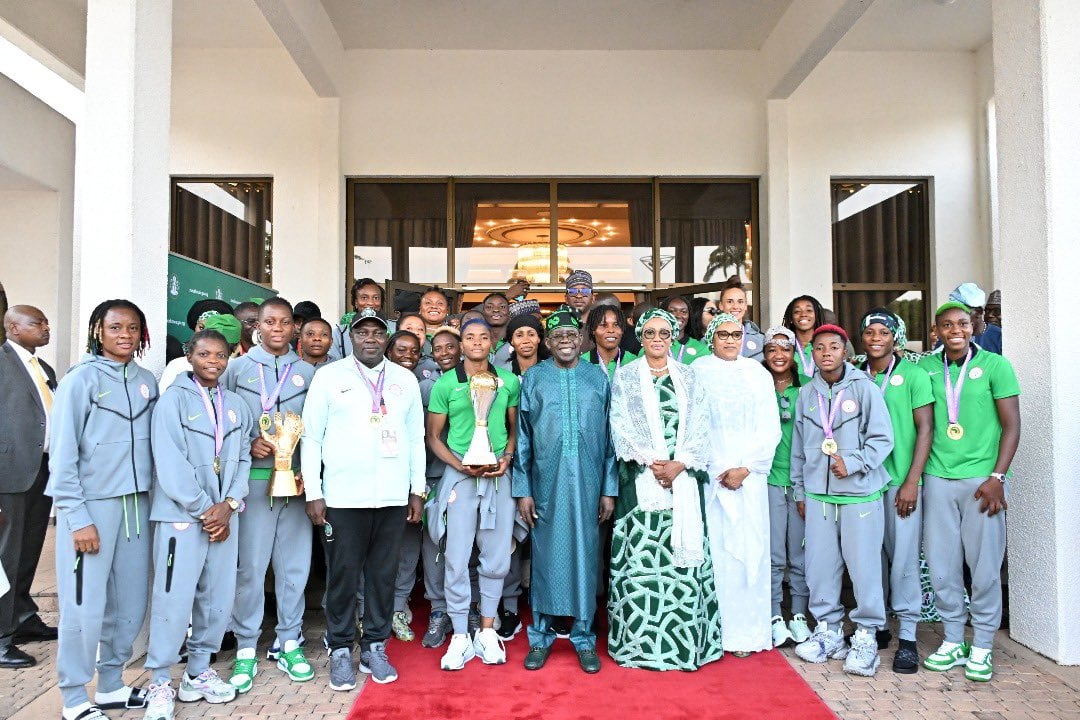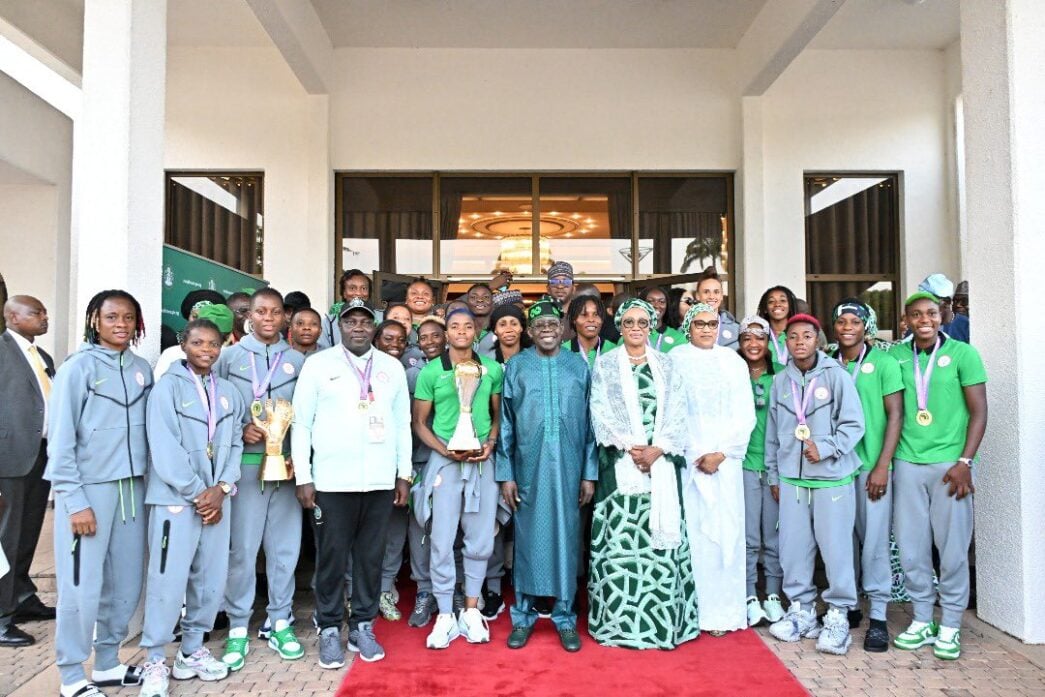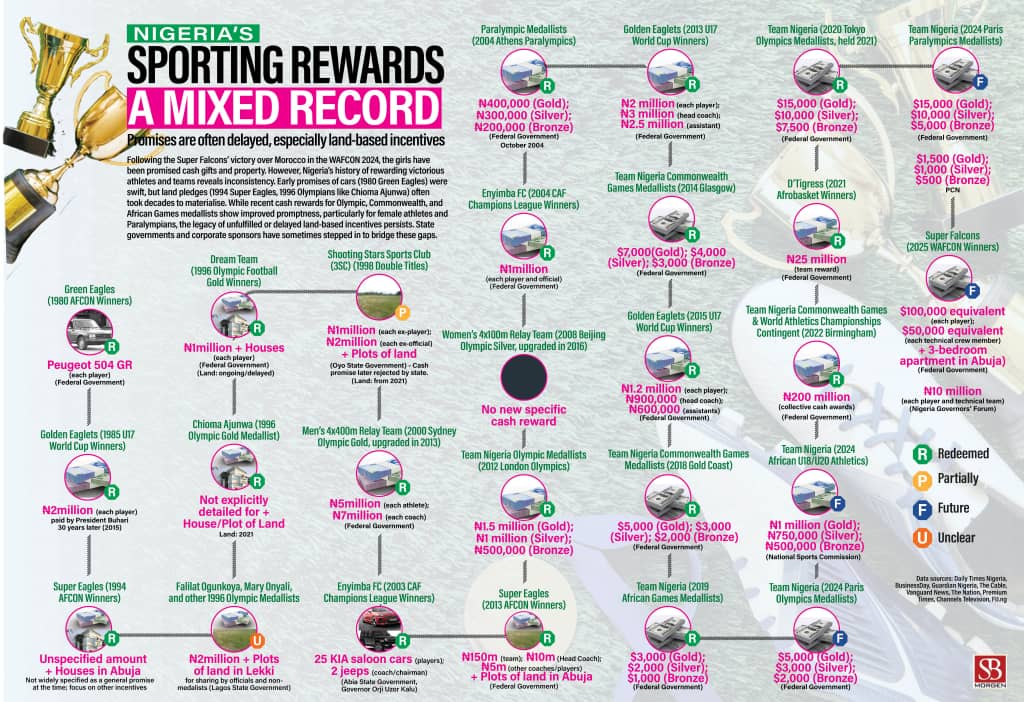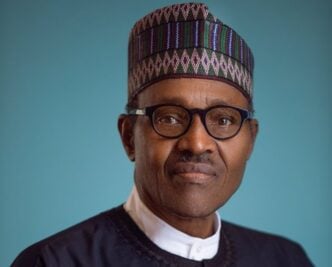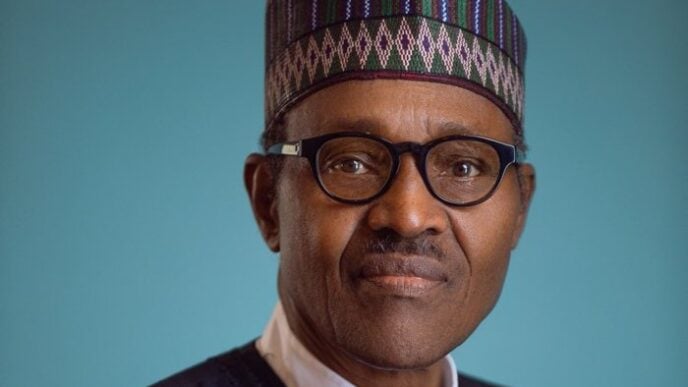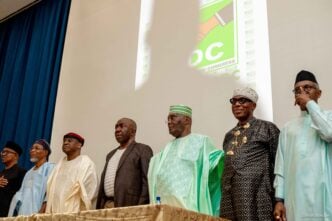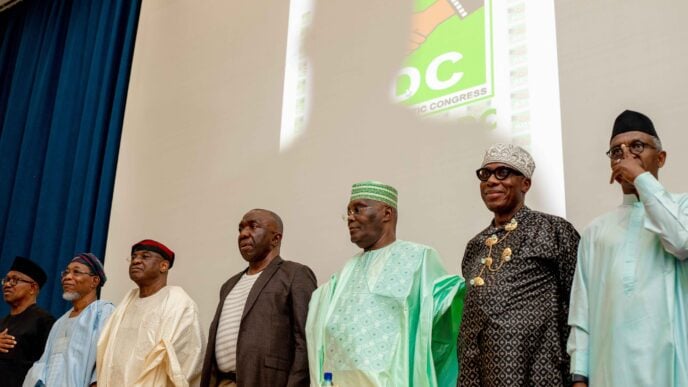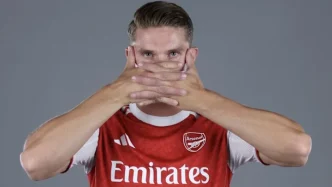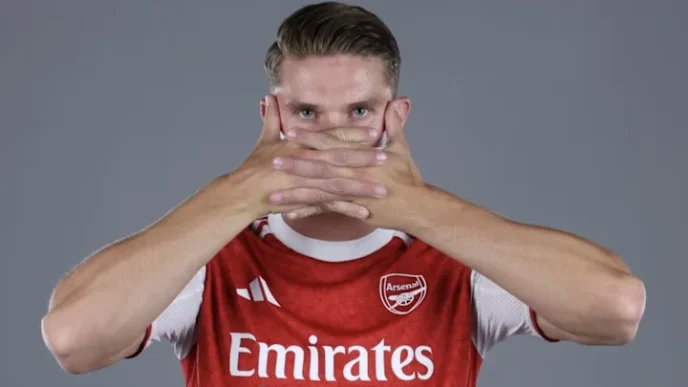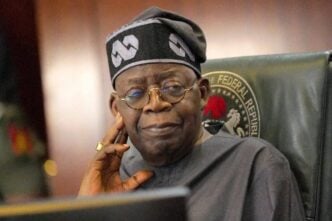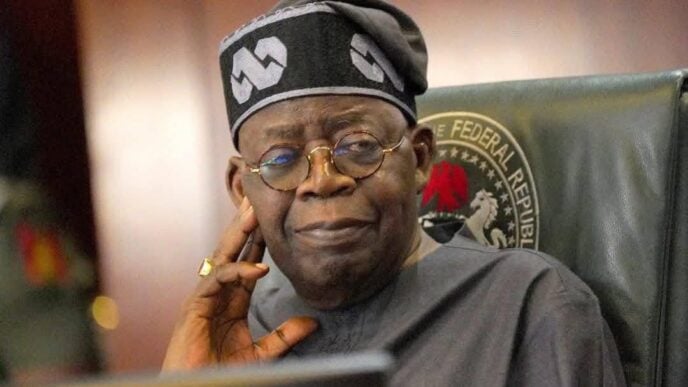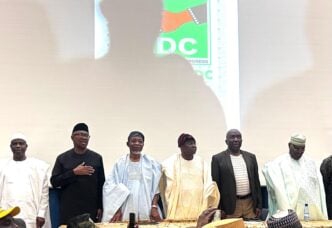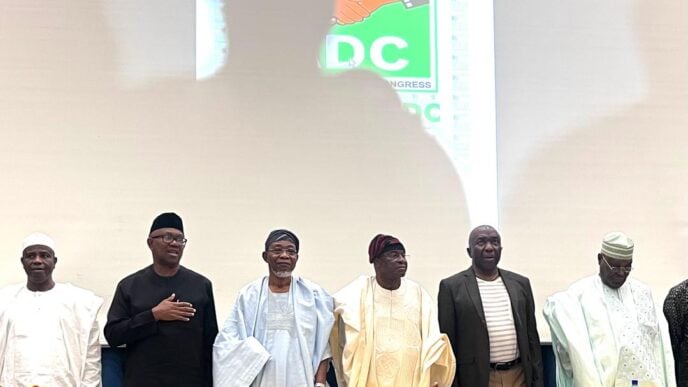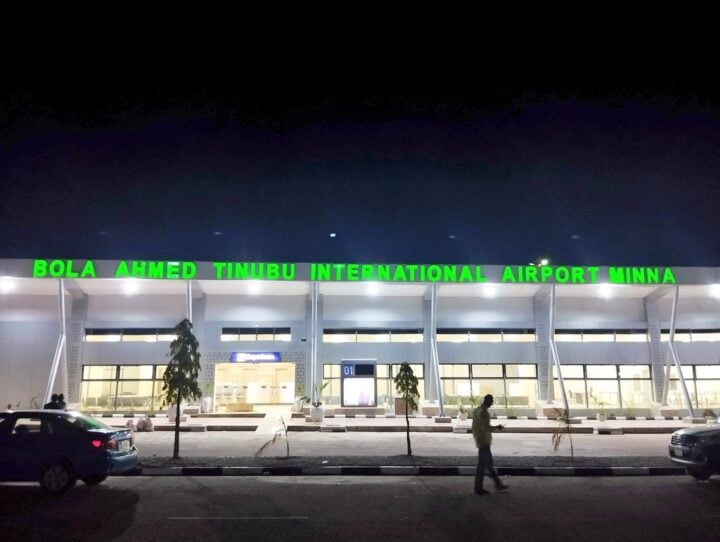Super Falcons with President Bola Tinubu
The roar that erupted across Nigeria when the Super Falcons clinched the WAFCON title against Morocco was truly deafening. It was a moment of unadulterated joy, a testament to our women’s national team’s resilience, skill, and sheer talent.
To see President Tinubu swiftly rewarding these victorious athletes with cash bonuses was a welcome and commendable development, because the girls need to feel appreciated.
This immediate recognition is an important step in acknowledging the immense effort and sacrifice these athletes pour into representing our country.
Their hard-fought and well-deserved victory brought a much-needed wave of national pride. This kind of prompt appreciation can inspire future generations and, crucially, help retain top talent within our borders.
Advertisement
However, while we rightly celebrate this recent act of goodwill, it is impossible to ignore the long shadow cast by past unfulfilled promises and painfully delayed rewards. The data paints a stark picture: the legendary Super Eagles, winners of the 1994 AFCON, were promised houses in Abuja by General Sani Abacha, a pledge that only began to see significant fulfilment from 2022 onwards – nearly three decades later. Imagine the demoralising wait for a reward earned through national glory.
Similarly, the Golden Eaglets, who triumphed at the 1985 U17 World Cup, had to wait until 2015 for President Buhari to fulfil a cash promise, a staggering 30-year delay. Even the iconic Dream Team of 1996, Olympic football gold medallists, face ongoing delays with their promised land allocations, despite receiving cash rewards relatively quickly. Such protracted waits erode trust, dampen the spirit of future athletes, and send a clear message of systemic neglect.
Advertisement
These historical precedents highlight a pervasive truth about Nigerian sports: our victories often come not because of a robust, supportive system, but despite its glaring deficiencies. We celebrate individual brilliance and sheer tenacity, exemplified by legends like Chioma Ajunwa, who defied immense odds to win Olympic gold, or Victor Osimhen, whose meteoric rise to global football stardom is a testament to raw talent honed through personal grit, often with minimal systemic support from home. This lack of consistent, systematic investment and support inevitably leads to a brain drain of sporting talent.
Athletes like Favour Ofili, a prodigious track and field star, find themselves seeking better training facilities, coaching, and opportunities abroad. Despite their recent triumph, even the Super Falcons have consistently battled issues with unpaid match bonuses and allowances before and during tournaments – a disheartening struggle that underscores the systemic neglect even our most successful teams face.
In a country grappling with economic challenges, investing systematically in sports might seem like a luxury. Yet, it is precisely in such times that we should recognise sports as a powerful economic catalyst. A thriving sports industry creates a significant knock-on effect throughout the economy. It stimulates job creation in coaching, sports medicine, event management, merchandise production, and media.
Improved sports infrastructure, such as stadiums and training centres, not only benefits athletes but also creates construction jobs and boosts local economies. Major sporting events attract tourism, generating revenue for hospitality, transport, and local businesses. It is not out of the goodness of their hearts that Morocco has hosted two consecutive Wafcons, is hosting the next one, is hosting the next Afcon, and wants to host a World Cup and a World Club Cup.
Advertisement
It’s all about the Benjamins!
Furthermore, a healthy, active population, encouraged by accessible sports, reduces healthcare costs and increases productivity. Investing in sports is not merely about winning medals but about building a healthier, more engaged populace and diversifying our economic base.
The path forward is clear. While rewarding winners is important, it is a reactive measure. A sustainable future for Nigerian sports demands proactive, systematic investment. This means establishing and maintaining world-class training facilities, nurturing grassroots development programmes, ensuring timely payment of allowances and bonuses, and providing comprehensive support for athletes’ welfare and education.
Crucially, it requires a complete overhaul of sports administration, prioritising competence and transparency. The fight against corruption, which too often diverts funds meant for sports development, must be relentless.
Advertisement
Only then can we build a system that truly supports our athletes, allowing them to thrive not just despite the system, but because of it, ensuring that the bitterness of unfulfilled promises does not overshadow the joy of victory, and that sports contribute meaningfully to our national prosperity.
Nwanze is a partner at SBM Intelligence
Advertisement
Views expressed by contributors are strictly personal and not of TheCable.

